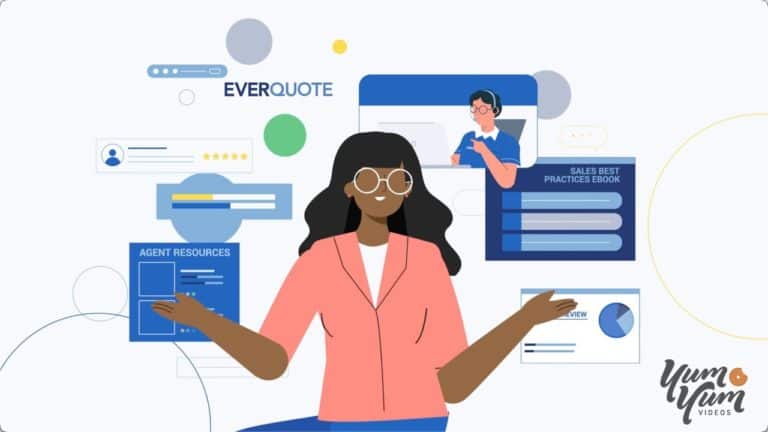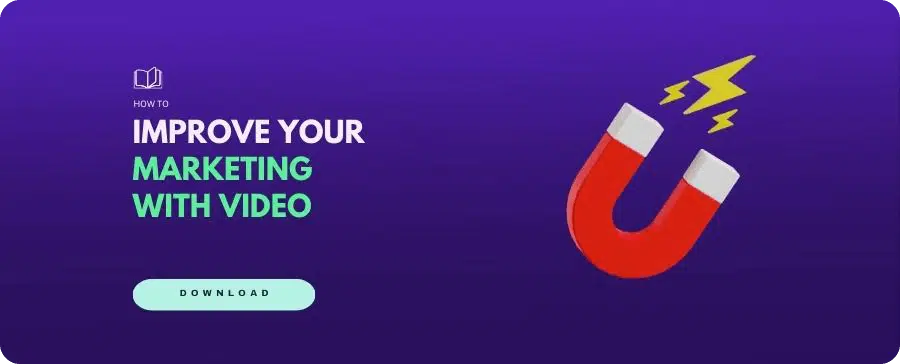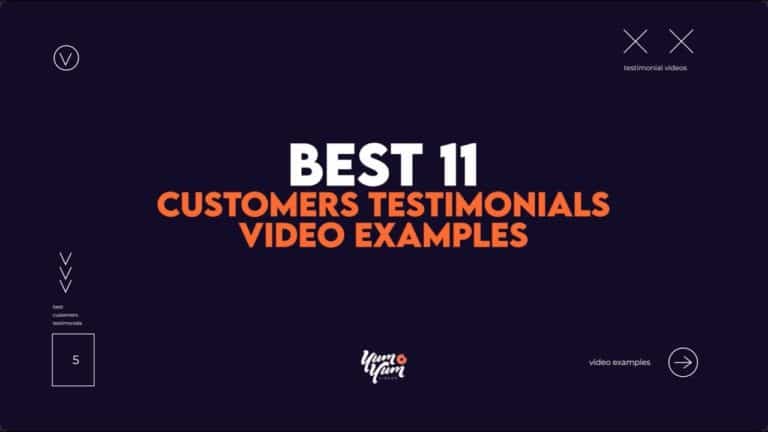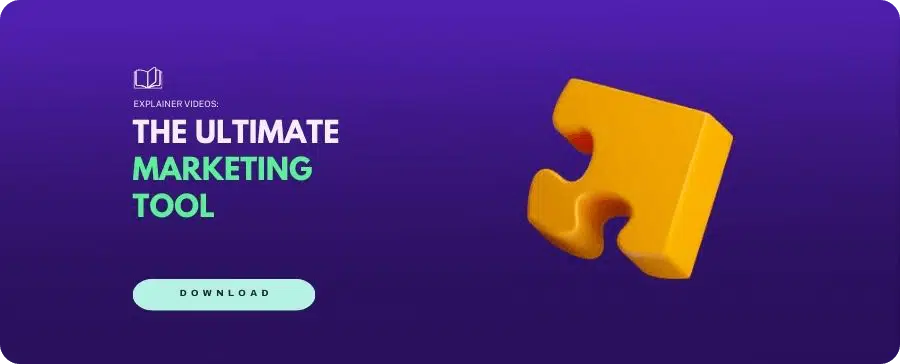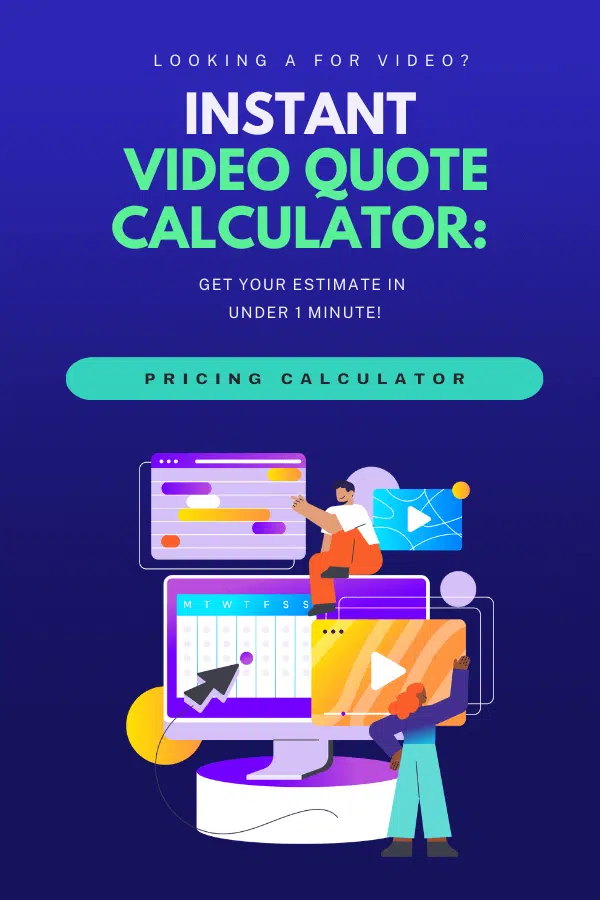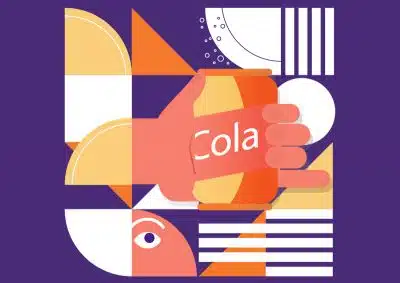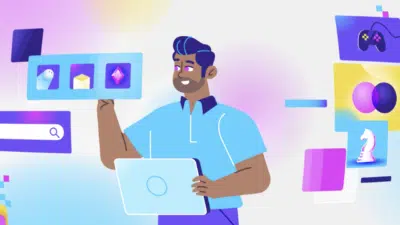B2B vs. B2C Marketing: Crucial Differences and Mistakes You Need to Avoid!
25/07/23
Author: Florencia Oliveto
9 min reading
Marketing

Almost every marketer knows the difference between B2B and B2C marketing. At least in theory. But when it comes to implementing those distinct approaches, more than a few end up mixing things up.
We don’t blame them, though. There are quite a few blurred lines on the subject! However, confusing the two can be detrimental to the bottom line and your overall marketing strategy since each one is aimed at a fundamentally distinct type of audience.
With that in mind, we thought we should take a look at the topic and clarify some key differences between the two, providing a few B2C and B2B marketing examples to make things clearer and underline the crucial mistakes you should avoid.
Let’s get started!
Content:
What Is B2B Marketing?
What Is B2C Marketing?
Key Differences in B2B vs. B2C Marketing
3. The Purchase Decision Process
4. Relationship with the Audience
6 Mistakes to Avoid Between B2B vs. B2C Marketing
1. Overcomplicating Your Message
2. Offering Time-Consuming Content
3. Neglecting B2B Social Media Marketing
5. Ignoring Mobile User Experience
Table of Contents
What Is B2B Marketing?
Business-to-business marketing focuses on companies whose primary customers are other businesses, providing them with supplies, services, or digital solutions.
What’s particular about this type of marketing is that B2B organizations don’t usually market their products or services to the end-user, who is often the customers’ staff. Instead, they target executives or teams with the authority to decide on company purchases.
Need some B2B marketing examples to grasp the concept better? Think about Slack or HubSpot, for instance. They market their platforms to other organizations. Or think about us! Our explainer video company produces custom videos for companies developing a video marketing campaign, making us part of the B2B industry.
(Explainer video by Yum Yum Videos.)
What Is B2C Marketing?
As you have probably guessed, Business to Consumer marketing involves companies who target individual customers, not businesses. These customers are often the ones who will use the product or service and tend to buy it for personal reasons.
Some examples? Coca-Cola, Nike, L’Oreal Paris, and every other company – big or small – whose products or services are meant for people like you and me to satisfy our own needs, not a business’s.
Key Differences in B2B vs. B2C Marketing
Since the B2B and B2C industries don’t target the same audience, it’s only natural that they call for different marketing strategies. Let’s look at the factors that play a part in each setup and see where they differ.
1. Motivation to Purchase
One of the most notorious differences in B2B vs. B2C marketing is the reason why their target audiences decide to purchase.
B2B buyers tend to make buying decisions guided by logic. They are looking for a solution that helps their business save time or money and, therefore, look closely at hard data that proves your product or service is effective and brings a high ROI. In other words, they see your offering as an investment.
On the other hand, B2C customers are mostly emotionally driven. It’s not like they make irrational buying decisions – at least not for the most part – but they are definitely influenced by their own desires and the benefits that your product or service promises.
2. The Content
Another critical difference in the B2B vs. B2C marketing battle is the kind of content the audience consumes.
Business people tend to research in-depth before making a purchase decision. This is not only for the sake of their companies but also because they sometimes need to convince their bosses to purchase. So, to make them go further down a B2B marketing funnel, you should nurture them with educational content. Even better if it includes hard data that can help them make the most unbiased decision possible.
B2C clients also thrive on educational content… but up to an extent. They may not want to delve into the ins and outs of your product or service. Instead, they are likely to appreciate content with entertainment value.
3. The Purchase Decision Process
One of the biggest differences between B2C and B2B marketing funnels is that the latter usually takes a lot more time.
You see, individuals tend to make B2B purchases on their own and without putting too much thought into it – unless they are terribly indecisive buyers (guilty).
But if you compare B2B vs. B2C marketing purchase decision processes, you’ll notice that the former is more complex and usually involves more than one decision-maker. Undeniably, that slows down the customer’s journey through the B2B marketing funnel.
4. Relationship with the Audience
As the B2B decision process is more prolonged, clients get to establish a closer relationship with the company. Take our company as a B2B marketing example: we strive to sustain a back-and-forth conversation with our potential clients, so we get to know each other quite a bit.
Meanwhile, B2C clients tend to have a merely transactional relationship with the company and maybe a short interaction with customer service afterward – there are not many chances to build a solid relationship.
6 Mistakes to Avoid Between B2B vs. B2C Marketing
We have seen that B2B marketing is quite different from B2C, but both overlap with each other more than you would think!
The problem is some B2B marketing agencies ignore the overlapping areas and follow a black-or-white approach that fails to resonate with their audience. So let’s take a look at the mistakes they make and learn how to avoid them!
1. Overcomplicating Your Message
No matter how much you contrast B2B vs. B2C marketing, there’s a piece of advice that’s common to both fields: Simplify your content!
It’s vital to make your message understandable to the audience, so try to speak their language.
Be careful, though: we are not referring to dumbing things down, as you can come across as inexperienced (something particularly damaging in the B2B landscape). The idea is to deliver the information in a way that your audience can find easy to follow. Depending on the case, that may or may not entail mentioning jargon.
Find more video examples like the one above in our company’s portfolio!
2. Offering Time-Consuming Content
Yes – buyers want to be educated when they go through a B2B marketing funnel. But that doesn’t mean they are willing to read an entire white paper on your product or services’ benefits!
In the business world, time is money. B2B clients will appreciate you offering them short and easy-to-digest content – like you would do in a B2C marketing strategy!
Here videos come particularly handy since they can help you condense lots of information in a short and dynamic piece. Plus, B2B buyers love watching videos! They particularly favor those that help them inform their purchase decisions, like product, how-to, and testimonial videos.
3. Neglecting B2B Social Media Marketing
If you compare B2B vs. B2C marketing campaigns, you’ll notice that social media is often seen exclusively as a B2C medium.
This is a logical conclusion if you think about platforms like Instagram or TikTok. That said, many other social media networks – like LinkedIn, Facebook, or YouTube – can be fruitful channels to add to your B2B marketing funnel. These platforms can be great vehicles to educate and inform your audience and find potential customers. Not to mention that B2B customers are increasingly resorting to social media to research their suppliers. So, don’t forget to include B2B social media marketing in your strategy!
4. Avoiding Segmentation
B2B tends to target niches, so the company can treat all its clients in the same way and still offer them a satisfactory experience, right?
No! Different kinds of companies have distinct needs, and catering to those can help you provide a more personalized experience – and ensure you a positive review. 😉
So, try to segment your B2B clients into groups depending on their industry, size, country, or the like. Take us as a B2B marketing example of this valuable tip: we divide our work into multiple fields – healthcare, IT, and finances, among others – so we are aware of the specific needs of each industry we work with.
5. Ignoring Mobile User Experience
Who said only B2C buyers resort to their phones to inform and make purchase decisions? In truth, many clients use their mobile devices through most of the B2B marketing funnel!
Optimizing your webpage, eCommerce site, and content for mobile devices can not only help you reach these modern B2B buyers but can also turn them into returning customers. Believe it or not, 90% of B2B clients who had a great mobile experience would buy again from the same vendor compared to 50% of those who hadn’t.
Considering this, mobile users are an audience you will want to satisfy, whether through your B2B social media marketing, website, or blog.
6. Forgetting About Emotion Altogether
Yes – B2B buyers are motivated by logic. But they are still humans, and as such, they can’t entirely detach themselves from emotional responses.
So, while any reputable B2B marketing agency would focus on data-driven content, it’s still vital to spice up your strategy by striking a chord with your audience.
Not any chord, though. In B2B marketing, customers will relate to stories that touch on their emotional connection with their company or employees. Addressing personal desires is out of the table for any serious B2B social media marketing or content strategy.
Wrapping Up
We have created this small guide comparing B2B vs. B2C marketing to prevent you from mixing up both kinds of strategies. However, it’s also critical to remember this is not a black-or-white situation!
Yes, B2C and B2B marketing funnels are different, and so are the strategies they involve. But both types of marketing have things in common.
They both should try to generate emotional responses in the audience, offer a pleasant mobile user experience, and mind their B2C and B2B social marketing strategies.
As you may have noticed, many of the common mistakes we mentioned today are related to an inflexible and old-fashioned view of B2B marketing. The truth is that corporate decision-makers are not really suit-and-tie executives who discover your company just through traditional digital marketing channels and make 100% unbiased decisions. They integrate the tools they use in their personal lives, such as their smartphones and social networks, into their work routine – and that’s something B2B marketers should take into account!

Florencia Oliveto – Content Writer
A skilled writer with a background in audiovisual design. She combines her knowledge of the video production process with a genuine passion for digital marketing. Her goal is to deliver high-value content that’s not only educational but also engaging and easy to understand.
